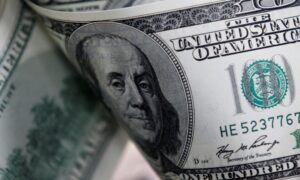
ESG RIP: Review of Terrence Keeley’s ‘Sustainable,’ Part 4
Concern about catastrophic climate change has been the biggest factor driving ESG, yet the likelihood of climate change being catastrophic and the attainment of net zero are not open to debate or challenge by participants in financial markets. In the last of his four part review of Terrence Keeley’s “Sustainable,” Rupert Darwall argues that this undermines the function of financial markets as efficient, unsentimental allocators of people’s savings in a way that maximizes growth and economic well-being.
The importance of “Sustainable” is reflected in the authorship of its foreword, which is by BlackRock’s CEO, Larry Fink. Acknowledging the controversy surrounding sustainable investing and the lively debate that it has ignited, Fink writes: “I have always believed that the best way to work through big and important questions is through open and robust debate—challenging conventional ideas, finding new solutions.” Concern about climate change is the principal factor that drove the prodigious growth of ESG and sustainable investment. Although not theoretically synonymous, in practice they are—whenever there is a conflict between “E” and “S,” the “E” of climate change invariably nullifies the “S” of employee and wider stakeholder interests. Thus BlackRock requires the companies that it invests in to produce specific plans to align their activities with the global goal of net-zero greenhouse gas emissions by 2050, commonly but mistakenly referred to as alignment with the Paris climate agreement, which specifies achieving a balance between anthropogenic emissions from sources and removal from sinks “in the second half of this century,” a goal that is not binding in international law and that has not been legislated by the U.S. Congress….